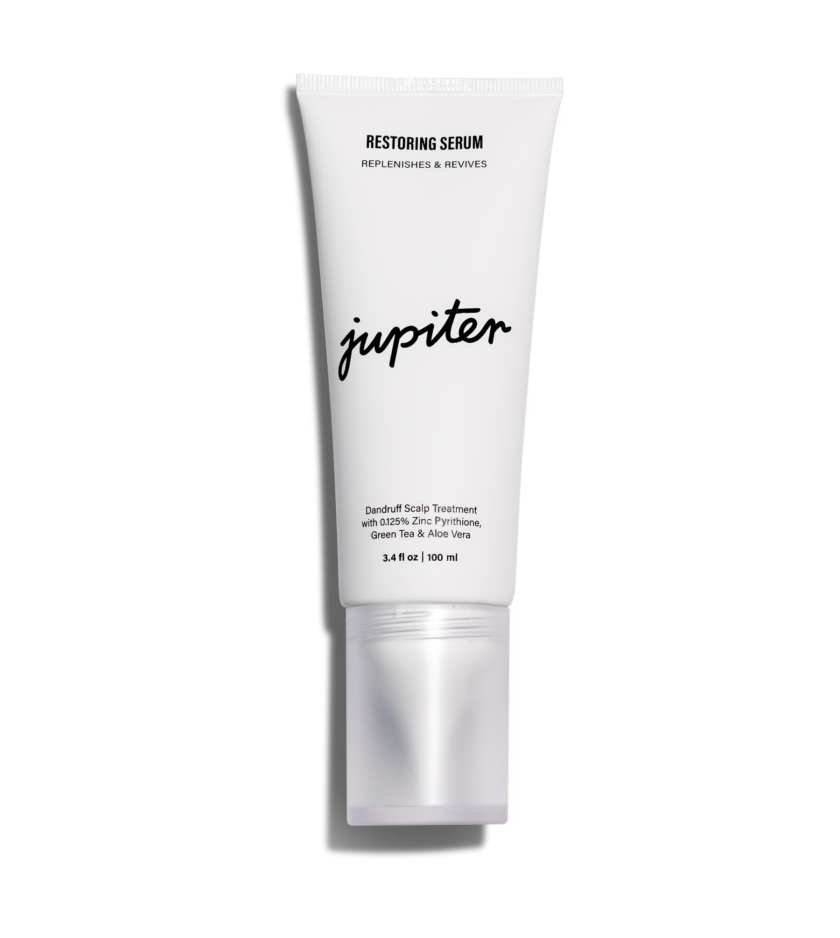#MakeMillionsMoreConfident with Strong Girls United
#MakeMillionsMoreConfident with Strong Girls United
Have you ever walked down the street and found yourself totally mesmerized by someone else’s good hair day? Their hair is smooth, bouncy, and luscious and yours may be feeling, well, a little lackluster by comparison.
Hair envy. We’ve all experienced it.
It can be easy to feel like that’s just the hand you were dealt. And it’s true that our genetics play a big role in what our hair looks and feels like. But the secret is, no matter what hair type we have, we actually can influence and help shape our hair health.
Keep reading to unlock some of the secrets of your scalp and see how you can become someone else’s hair goals.
Hair Health Starts At Our Roots
Our body relies on multiple microbiomes to self-regulate and stay balanced. You’ve probably heard of the trillions of microbes at work in your gut and stomach. Well, your scalp is no different.
A mix of bacteria contributes to your scalp’s health. When they’re working together as they should, bacteria form a diverse community on top of your head, interacting with your skin’s natural immune cells.
This interaction has been proven to maintain the scalp’s balance and self-regulation, as bacteria helps to decrease inflammation and promote tissue repair.
The tricky thing is, it’s a delicate balance, and when it’s thrown off, you might experience itchiness, flaking, or irritation. There might be a variety of causes for your scalp’s imbalance, but more often than not, it’s related to an overgrowth of one particular fungus.
When Our Scalp’s Balance Is Out Of Whack, Dandruff Happens
There is a fungus among us when it comes to the microbiomes in our stomachs, guts, and skin. Malassezia is a type of yeast that was deemed one of the primary causes of dandruff dating back to 1846.
When we’re seeing flakes on our t-shirt and reaching for the pencil to scratch away at our scalp, we’re likely experiencing an overgrowth of Malassezia. In other words, the fungi have disrupted the healthy community of bacteria and taken over.
This can disrupt the natural cycle of skin growth and shedding. Generally, the lifecycle of skin cells on our scalp is about a month long. Dead skin cells are shed, unnoticed by us, and replaced with new healthy cells, and so on.
When we’re experiencing an overgrowth of Malassezia, this cycle is rapidly sped up. We shed skin cells faster, ultimately leading to a build-up on the surface of our scalp, which often leads to flaking.
Jupiter’s Balancing Shampoo and Restoring Serum are both formulated with Zinc Pyrithione, a dermatologist-tested and FDA-listed active ingredient designed specifically to address the overgrowth of Malassezia and help stop flaking and scalp irritation.
From Fungi To pH, More Secrets To The Science Behind Your Hair
The scalp is a complicated place. It’s impacted and influenced by our genetics, our climate, and our hair care routine. These factors can actually change the chemical makeup of our hair itself, and that’s why it’s essential to talk about pH.
Did you know that hair is naturally acidic?
You probably remember doing some experiments in science class with pH strips.
pH is a measurement of how acidic or basic a substance is. There’s a scale between 0–14, with anything below seven being more acidic and anything above seven being more basic or alkaline.
Our hair naturally measures around 3.5–4.5 on the scale, but it’s known to fluctuate.
Just like with our microbiomes, outside influences can disrupt our hair’s natural pH. Alkaline shampoos can negatively impact the strength of our hair, causing breakage, frizz, and cuticle damage.
Overtreating our hair can also have this effect, so be careful how often you color your hair and pay close attention to the ingredients in your dyes.
Our hair and scalp chemistry is a delicate balance, and with less harsh products, we can help protect it.
The scalp is a complicated place. It’s impacted and influenced by our genetics, our climate, and our hair care routine.
What Else Can We Do To Protect Our Hair? Products, Treatment, and Care
At this point, you’re probably feeling a little more respect for your dermatologist. The skin, and especially the skin on our scalp, is complex, and the science behind when it's healthy and when it's not is still developing.
Luckily, there are some things we know for sure. Try the following tips in your hair care routine, stay open to trying new products, and you may start to see some improvement in your scalp health.
Wash your hair with sulfate-free and Zinc Pyrithione shampoos and products. Shampoos formulated with Zinc Pyrithione are the best line of defense against yeast and fungi overgrowths. They’re proven to help stop flakes and soothe irritation. Make sure you avoid alkaline-leaning shampoos as well to support your scalp and hair’s healthy pH.
Give your hair a cool rinse and wash only with lukewarm water. Steaming hot water can dry out our scalp and lead to itching, flaking, and irritation. We know a cool wash may be a shock to the system, but it’s effective in locking in moisture for your hair and scalp.
Eat a protein-rich diet. Our hair is mostly protein. A healthy and balanced diet rich in protein can support a healthy and happy scalp. Eat your daily dose of protein and look for foods like lean meat, eggs, nuts, nut butters, and tofu to help support your skin.
The Science Behind Your Hair Is Clear
More and more, people are taking a closer look at the quality and makeup of the products they eat.
As we begin to understand how to influence and maintain gut health, we can’t forget to apply the same thinking to the microbiome and chemistry that sits on top of our heads.
Our scalp’s health is influenced by so many things we can’t control; our DNA, our climate, and the quality of the air filtration system in our homes or apartments can all influence the balance.
But thankfully, there are also plenty of factors we can control, like our diet, our scalp care routine, and the products we choose.
It’s time to start asking more from your shampoo and conditioner. It’s not enough for these products to simply wash your hair. In fact, it’s often too much, considering how traditional products can strip your hair’s natural oils.
The science points us to pay closer attention to the ingredients, prioritize maintaining our scalp’s microbiome, and relieving dry and irritated skin. If you want to feel confident about your hair’s health, from root to tip, start with the scalp.
And on that note, we recommend checking out our Restoring Serum, a leave-in product that helps to relieve and control itching, flaking, and redness of your scalp. Formulated with the powerful active ingredient Zinc Pyrithione, in addition to aloe vera, green tea, and salicylic acid, it’s the perfect tool to help soothe your scalp in between washes.
Remember, a healthy scalp is a happy scalp. Treat your scalp with kindness and proven chemistry - your hair will thank you.

Fight dandruff with our nourishing medicated leave-on treatment featuring Zinc Pyrithione. Calming Aloe Vera combines with B-vitamins Niacinamide and Panthenol to leave scalp and hair looking smooth and healthy.

































